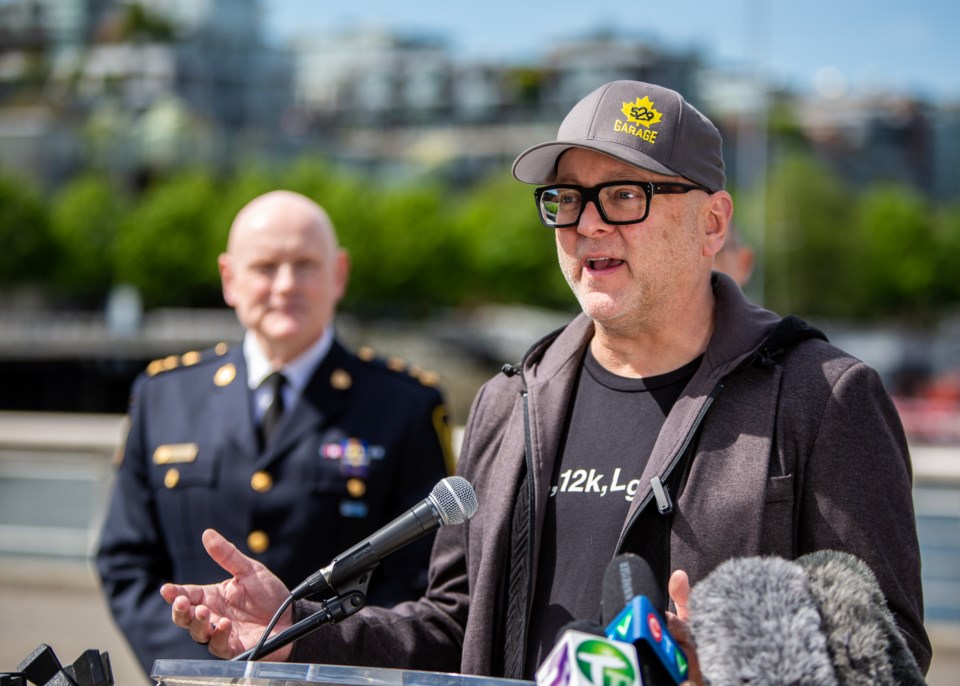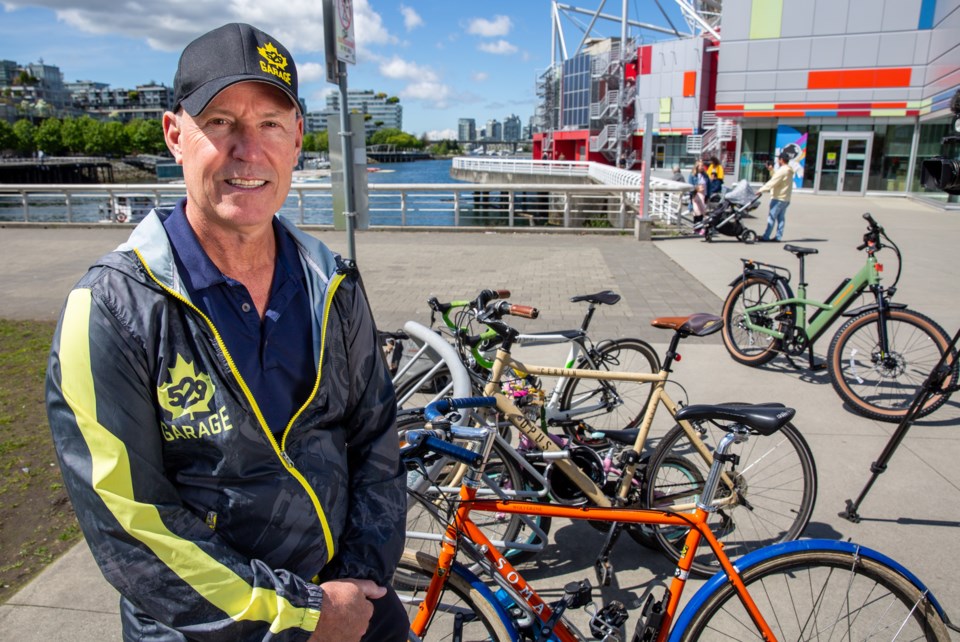A partnership the Vancouver Police Department formed almost 10 years ago with a Portland company to combat bike thefts — and has seen impressive results in reducing the number of stolen bikes in the city — has now gone provincewide.
Project 529, an online bike registry created by Xbox co-founder J Allard, has partnered with the B.C. Ministry of Transportation to provide all police agencies and RCMP detachments with access to the company’s database.
“I'm here today just over the moon to see that that vision, that tone set in Vancouver [is now] expanding provincially,” Allard told reporters Tuesday at a news conference to announce the expansion of the registry.
“And while we were in dozens of municipalities here in B.C., this is an opportunity for all municipalities in B.C. to participate.”
The tone Allard referred to was set in 2015 when he, Police Chief Adam Palmer and then-constable Rob Brunt agreed to run a trial and see how many cyclists would sign on to Project 529.
3,065 bikes stolen in 2015
In the first week of the program, more than 2,500 bikes were registered. That has since grown to 76,000 and more than 200,000 in B.C., said Allard, who was inspired to create the company after he got his bike stolen in Seattle in advance of a trip to Whistler.
At the time of launching the trial in Vancouver, the city’s stolen bike rate was increasing 20 per cent a year, with 3,065 stolen in 2015. That number decreased to 1,049 stolen in 2023 — a statistic Palmer described as “impressive.”
“But the work's not done,” Palmer said at the news conference held outside Science World, which is a high traffic area for cyclists. “There are still more than 1,000 bikes reported stolen every year in Vancouver, and hundreds more were likely stolen, but not reported to police.”
Palmer acknowledged that police will never completely eliminate bike thefts, but said Project 529 offers a modern, efficient, easy-to-use tool to deter thieves and improve the likelihood that a cyclist will get their bike back, if stolen.

'Something's fishy'
Allard said the process to register a bike takes five minutes, and includes loading photographs of the person’s bike on the registry, along with serial number. Each registrant gets a difficult-to-remove yellow decal to place on the bike.
Cyclists download an app, which they can use to alert other registrants within a five-kilometre radius if their bike is stolen. Police are simultaneously alerted and the stolen bike file ends up on what Allard described as a police department’s “hot sheet.”
Allard acknowledged thieves can scratch serial numbers off a bike, but he said doing so makes the bike less attractive to an honest buyer.
“If you flip a bicycle over and you see no serial number, it's like buying a car without a licence plate — something's fishy,” he said.
“So the serial numbers kind of have to stay intact to make the bicycle valuable. On top of that, we put a sticker on the bicycle that has a six-character code. And that code signifies two things — it's a quick way for the police to look it up, or the community to look it up and to see if it's been stolen or not.”
Brunt, who retired from the VPD is now Project 529’s chief outreach officer. He provided more evidence why cyclists should register their bike with the program, which has expanded outside North America, with New Zealand the most recent country to join.
“The police do a great job of recovering bicycles, but without a system to connect the dots, we can't get those bikes back to you,” he said.
“What we've seen in Vancouver is the non-registered bikes are the ones that are getting stolen. A registered bicycle with a shield on it, it's not coming into [the VPD’s] property office anymore.”
'Really comforting'
Cyclist Scott Sinclair had locked his Soma Wolverine commuter bike to a rack near the location of Tuesday’s news conference. Before he bought the bike, he had one stolen in Calgary and another at his family’s cabin.
He registered his Soma with Project 529 after reading about the program’s success.
“It's really comforting to know that [my bike will likely get returned, if stolen] and to also know that the people who stole it might get caught,” said Sinclair, as he put on his helmet. “If they try and sell it to somebody else, it can be tracked and they will get caught. They'll have a disincentive to try and do this next time.”
Sinclair also pointed to his sturdy lock, which is insured for $2,000, and locking wheels to show how serious he is about not getting his Soma stolen.
“I've invested in trying not to lose this beautiful thing, and I think everybody should do the same,” he said, before riding away on the seawall.




